DNA
Throughout history, people and cultures have travelled across the world, settling in distant lands and weaving a timeless story of migration, conflict and coexistence. This story is written in our DNA — the hereditary material that connects us to our ancestors. DNA knows no language, religion or borders. It carries an indelible trace of where we come from, and forms one of the keys to who we are.
Of course, we feel a bond with the place and culture in which we grew up. Those surroundings shape us and define much of our identity. Yet, in another sense, our DNA makes us citizens of the world.
The same can be said of music. Like people, music has journeyed across the globe for centuries. Themes and rhythms have travelled and transformed, appearing in different countries — even on distant continents. Borders fade; they are far less fixed than we sometimes imagine.
For this project, the five musicians of Dianto Reed Quintet took part in DNA testing to explore their origins and discover which (new) families they belong to. The results were full of surprises: the predominantly Spanish quintet (with one member from South America) turned out to have roots stretching from Greece to Scandinavia and from Mexico to the Balkans.
The programme combines newly commissioned works — by Ramin Amin (Iran) and Fuensanta Méndez (Mexico) — with traditional, classical and folk music. The sound world expands with the gaita, the Galician bagpipe, played by our bassoonist María, who also lends her voice in song.
Alongside the music, audiences will hear pre-recorded testimonies from contemporary migrants, including the two commissioned composers. These voices reflect on the many reasons people move: hunger, war, love, ideology, sexuality, study, work, and more. Migration always carries mixed emotions — a sense of loss and longing, but also of hope and renewal. We see it as an opportunity for growth and enrichment.
It is the migrations of our ancestors that make us who we are.
This performance offers a musical portrait of the rich diversity within the group’s DNA — and within each of its musicians — while standing as a heartfelt tribute to global citizenship.
Team
Dianto Reed Quintet:
María González Bullón – oboe, English horn, guitar
Ovidi Martí Garasa – saxophone
María Losada Burgo – bassoon. voice, bagpipe
Erick Rojas Toapanta – bass clarinet
María Luisa Olmos Ros – clarinet
Scenography – Dianto Reed Quintet
Theater final director (Eindregie) – Wieger Meulenbroek
Light technician – Wout Jansen
Voiceover (by order of appearance)
Ella Tempel
Erik Steven Rojas Toapanta
Ghaeth Almaghoot
Fuensanta Méndez
Program
Jean Sibelius (1865-1957). Finlandia, Op.26. Arr. Max Knigge.
Helen Hopekirk (1856-1945). Romance in A minor. Arr. Raaf Hekkema.
Ramin Amin Tafreshi (1992). Echoes of the Buried Lullaby (2025)*
Tradicional. Freilich. Arr. Max Knigge.
Antonio Vivaldi (1678-1741). Concerto “La Notte”. Arr. Hugo Bouma.
– Allegro
Ghaeth Almaghoot (1993). Klmlik. Arr. Max Knigge.
Rodolfo Halffter (1900-1987). 8 Tientos. Arr. Michele Mazzini.
– V
– VII
Lili Boulanger (1893-1918). Nocturne. Arr. Annemarie Hensens.
Fuensanta Méndez (1995). Las Patronas: Tren de los desconocidos (2025)*
– La Bestia
– Los Viajeros
– Las Patronas
Nikos Skalkottas (1904-1949). 4 Greek Dances. Arr Dimitris Andrikopoulos.
– Peloponnisiakos
– Kleftikos
Avelino Cachafeiro (1899-1972). Muiñeira de Chantada. Arr. Max Knigge.
*World Premiere
Tren de los Desconocidos (De trein van de onbekenden) – Fuensanta Méndez
The Mexican composer Fuensanta Méndez has dedicated this composition to Las Patronas, an independent group of women in Veracruz who, for the past thirty years, have devoted themselves to supporting the lives of migrants attempting to cross Mexico aboard La Bestia. Every day, they have exactly fifteen minutes to throw bags containing food and information to those on the train — a train on which around 400,000 people each year try to flee South and Central America in the hope of reaching the United States. La Bestia is a freight train also known as the Train of Death or the Train of the Unknown. The passengers are travelling on the roof because they cannot afford to pay human smugglers or the migration authorities, risking their lives on every journey.
“Once, I met someone in my city who seemed lost. He spoke Quechua and was searching for his younger sister, who had been abducted aboard La Bestia. I do not want them to remain ‘unknown’.
This is the first time I have written for reed quintet, and I regard it as one of the most inspiring commissions I have received so far.”
Voy a llegar a la frontera y cuando esté en la frontera te voy a llamar
ahí lloras por mí suficiente
confórmate por lo mientras que hoy voy a salir.
Eso es lo más importante que puedes tener
que la comida no te vaya a fallar y ahí te acordarás
ahora que voy a comer la comida siempre me deseo comer con ellos
confórmate por lo mientras que hoy voy a salir.
No te preocupes vamos a cambiar de toda esta situación que estamos pasando.
Llegué a Palenque reventados los pieses casi echado sangre en los zapatos.
No me arrepiento de haber venido porque lo hice como una decisión
lo que duele es lo que me hicieron a mí y aún tengo el valor.
Usted no se imagina, si no me hice loca es porque Dios es grande.
Tú les dices que me viste y que yo estaba alegre
no les vayas a decir que me viste así triste
que voy derrotada.
¿Quién te dijo que quiero cambiar el mundo?
Quiero cambiar yo.
No voy a cambiar el mundo,
voy a cambiar yo.
Echoes of the Buried Lullaby – Ramin Amin Tafreshi
The Iranian composer Ramin Amin Tafreshi, who resides in the Netherlands, explores the complexity of migration through a distinctly narrative approach. His new work sheds light on the harsh reality faced by Kurdish border labourers (Kolbars) in the western frontier regions of Iran. By reflecting the experiences of migrants through the extreme living conditions endured by people in these areas, he addresses themes such as displacement, resilience, social exclusion, and a profound sense of not belonging.
With this new piece, Amin Tafreshi creates an intercultural composition that intertwines traditional Kurdish lullabies with his own, Western-oriented musical language.
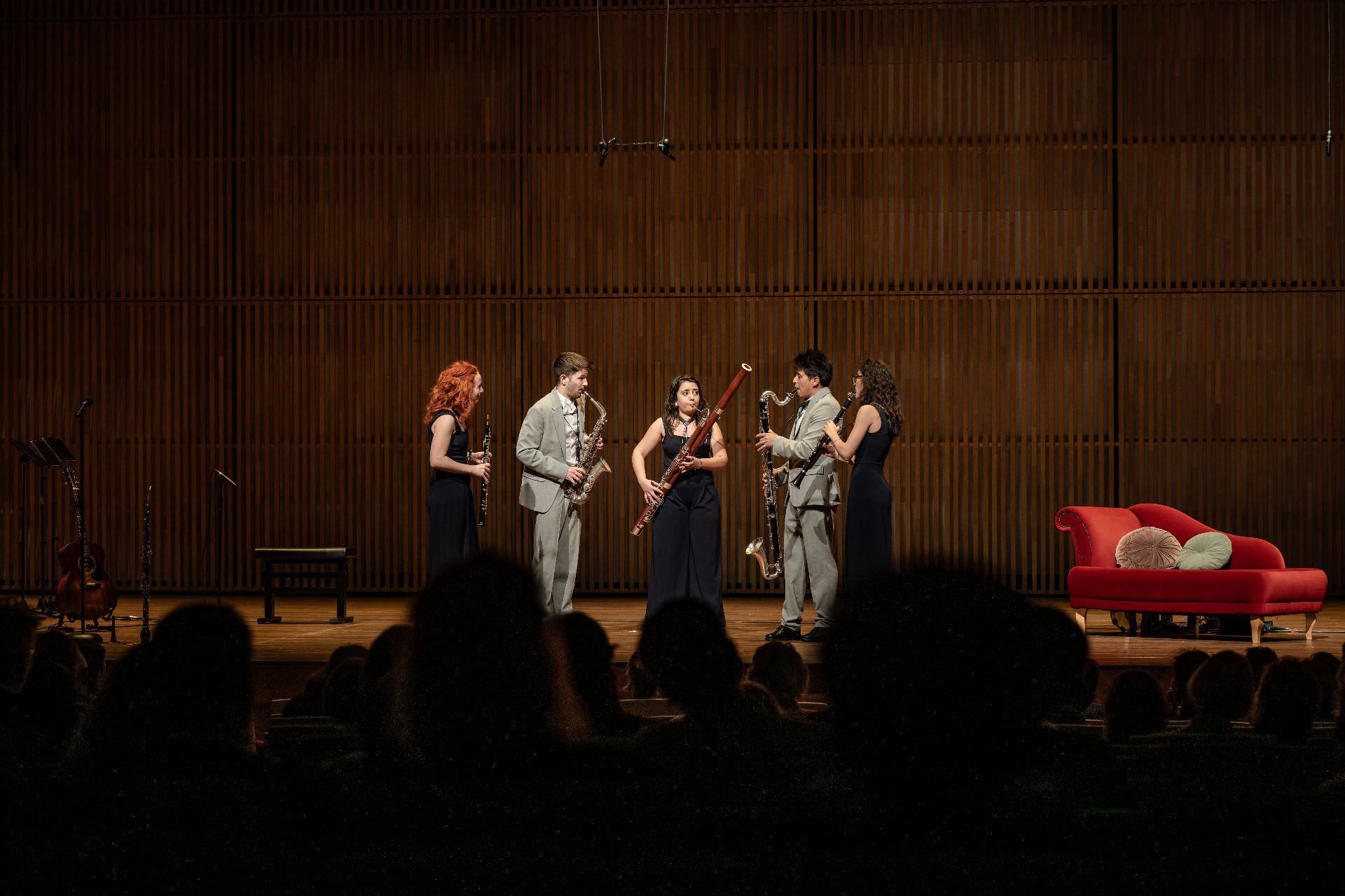
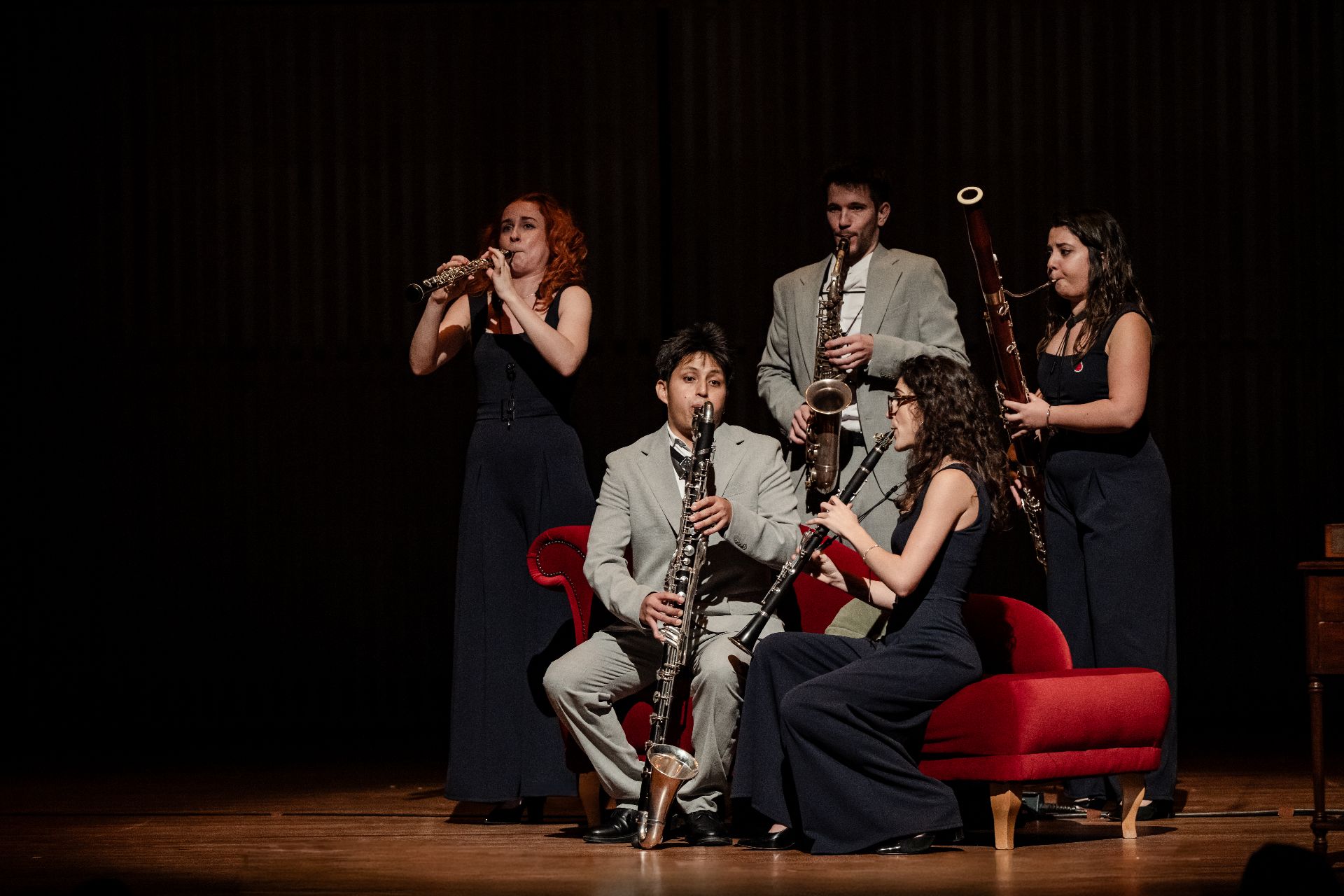
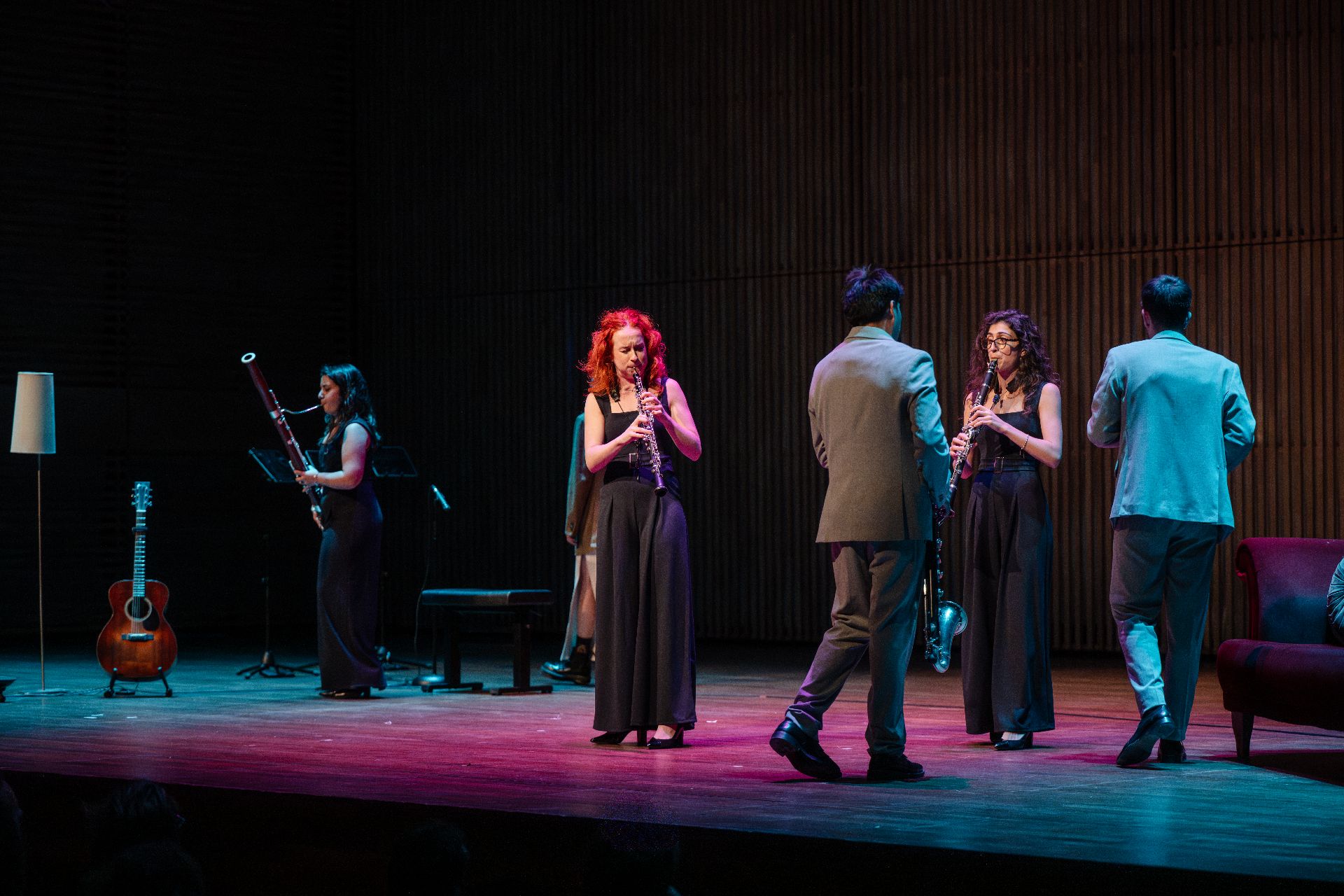
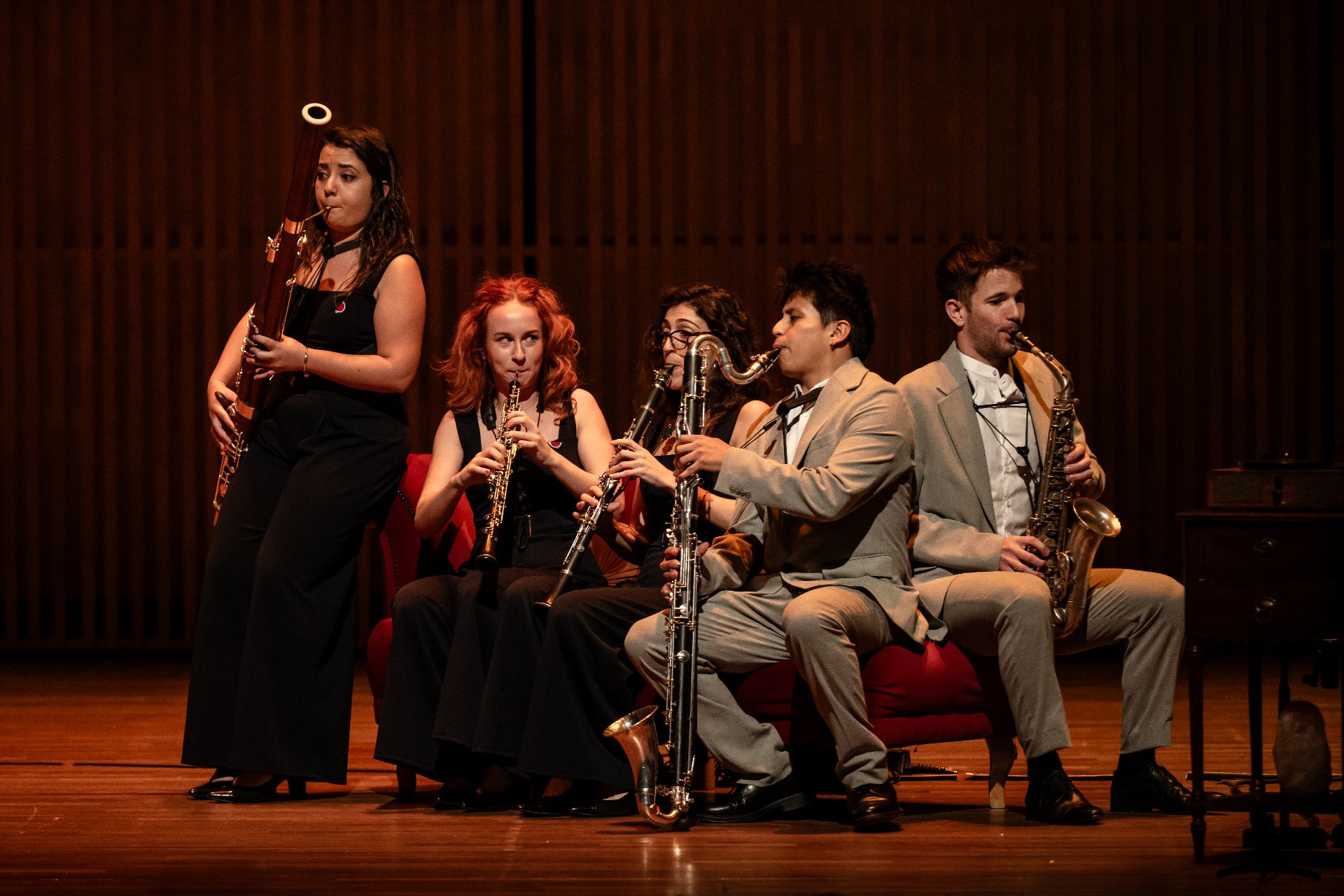
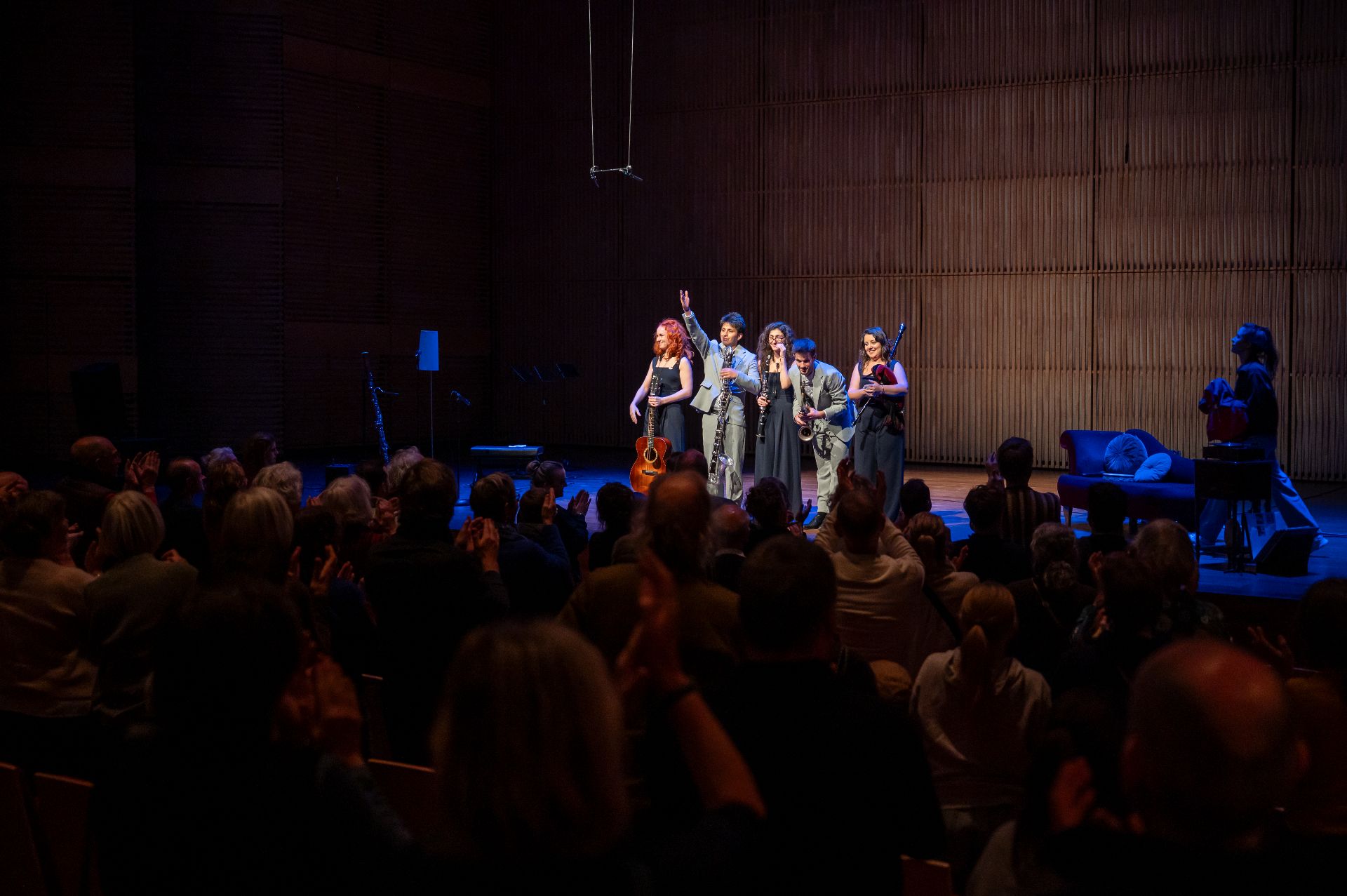
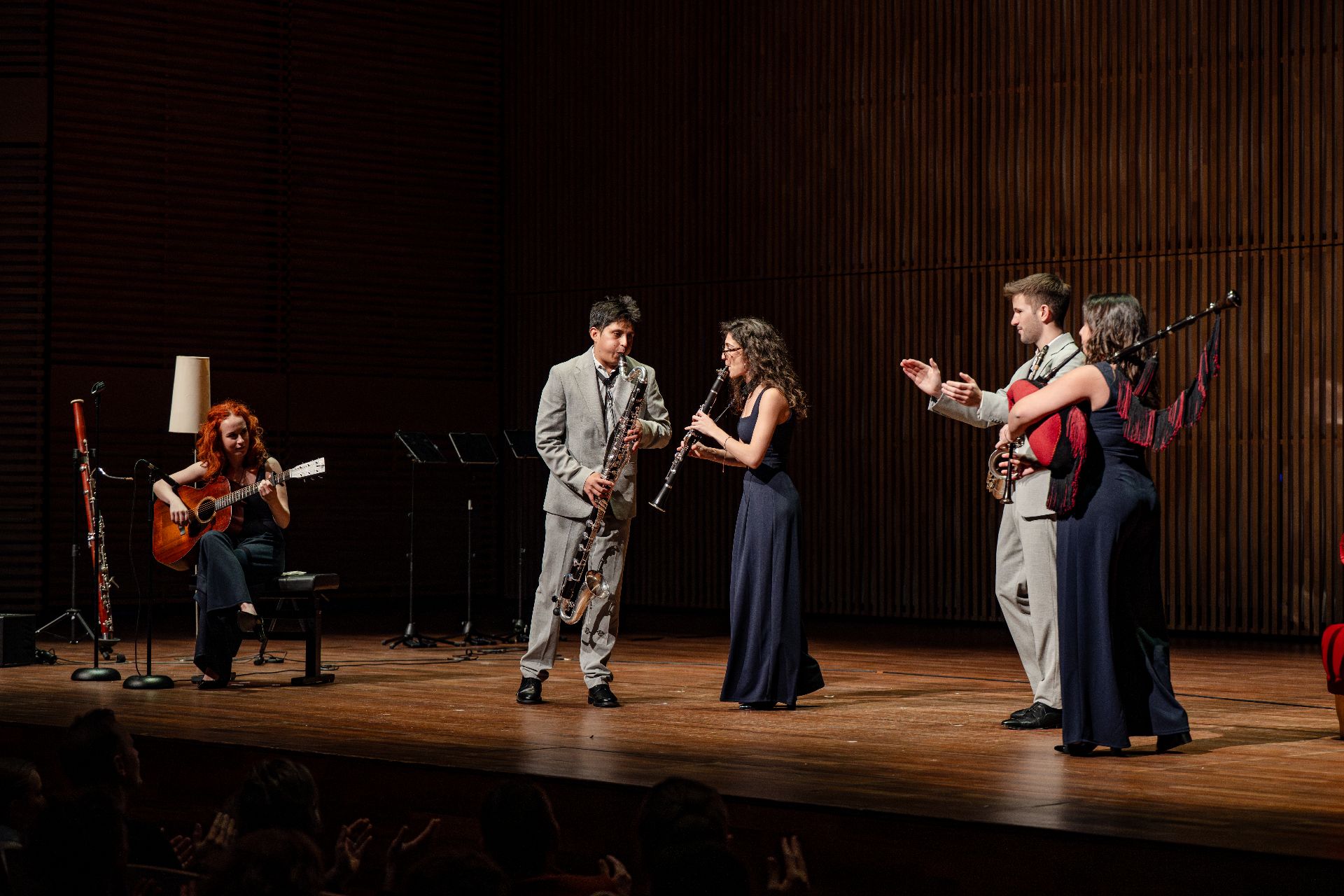
Photos: Maarten Mooijman



